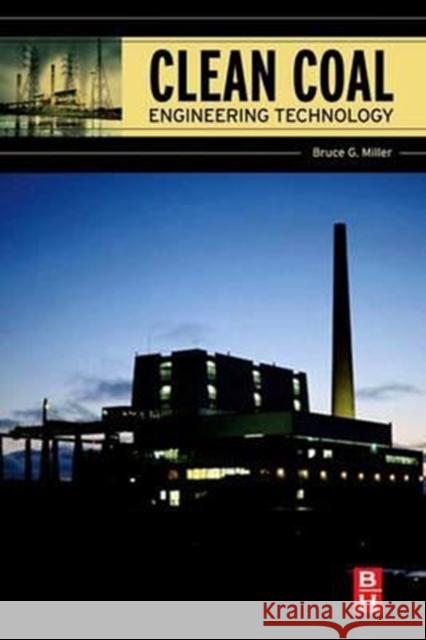Clean Coal Engineering Technology » książka
Clean Coal Engineering Technology
ISBN-13: 9780128103838 / Angielski / Miękka / 2016 / 696 str.
Concern over the effects of airborne pollution, green house gases, and the impact of global warming has become a worldwide issue that transcends international boundaries, politics, and social responsibility. The 2nd Edition of Coal Energy Systems: Clean Coal Technology describes a new generation of energy processes that sharply reduce air emissions and other pollutants from coal-burning power plants. Coal is the dirtiest of all fossil fuels. When burned, it produces emissions that contribute to global warming, create acid rain, and pollute water. With all of the interest and research surrounding nuclear energy, hydropower, and biofuels, many think that coal is finally on its way out. However, coal generates half of the electricity in the United States and throughout the world today. It will likely continue to do so as long as it's cheap and plentiful Source: Energy Information Administration]. Coal provides stability in price and availability, will continue to be a major source of electricity generation, will be the major source of hydrogen for the coming hydrogen economy, and has the potential to become an important source of liquid fuels. Conservation and renewable/sustainable energy are important in the overall energy picture, but will play a lesser role in helping us satisfy our energy demands today. Dramatically updated to meet the needs of an ever changing energy market, Coal Energy Systems, 2nd Edition is a single source covering policy and the engineering involved in implementing that policy. The book addresses many coal-related subjects of interest ranging from the chemistry of coal and the future engineering anatomy of a coal fired plant to the cutting edge clean coal technologies being researched and utilized today. A 50% update over the first edition, this new book contains new chapters on processes such as CO2 capture and sequestration, Integrated Gasification Combined Cycle (IGCC) systems, Pulverized-Coal Power Plants and Carbon Emission Trading. Existing materials on worldwide coal distribution and quantities, technical and policy issues regarding the use of coal, technologies used and under development for utilizing coal to produce heat, electricity, and chemicals with low environmental impact, vision for utilizing coal well into the 21st century, and the security coal presents.
- Clean Liquids and Gaseous Fuels from Coal for Electric Power
- Integrated Gasification Combined Cycle (IGCC) systems
- Pulverized-Coal Power Plants
- Advanced Coal-Based Power Plants
- Fluidized-Bed Combustion Technology
- CO2 capture and sequestration











